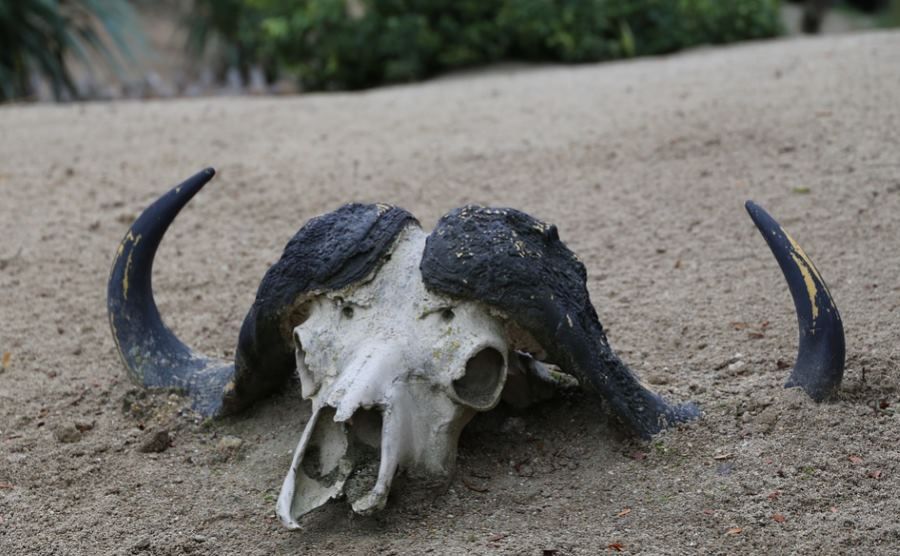Humanity has cull 60 percent of. vertebrate populations in just 40 years
Between 1970 and 2014, human activity led to the death of more than 60 percent of the world’s. of mammals, birds, fish, amphibians and reptiles that inhabit our planet, according to a report compiled by the WWF. Earth is losing biodiversity at a rate seen only during mass extinctions, scientists warn.
WWF (World Wide Fund of Nature) is one of the world’s largest conservation NGOs, which Our mission is to halt the degradation of the planet’s environment and build a future in which rej humans live in harmony with nature, preserving the world’s r Biodiversity. It works in more than 100 countries around the world. The organisation, together with the Zoological Society of London (ZSL), publishes the biennial Living Planet Report, which The study aims to assess the state of the world’s flora and fauna.
A new report just released does not bring us good news. It was prepared on the basis of research conducted by 59 teams In research with r of various. According to the study, only a quarter of the world’s land surface is currently free of human influence. Researchers estimate that this proportion will continue to decline and by 2050 will be only one-tenth.
As the document reads, the ever-increasing and uncontrolled human consumption of resources In the natural world, this has led to the decimation of vertebrate populations on the inhabitants of our planet. Scientific studies, on which The report is based on 16,704 birds The world’s bird populations of more than 4,000 species in vertebrates between 1970 and 2014. All of these populations have declined by an average of 60 percent.
South and Central America have suffered the heaviest losses, where on average wildlife populations have declined by 89 percent. R Freshwater fish species have fared particularly badly, with a population decline of 83 percent. Animals living in the wild in the tropics are also being decimated.
– Science shows us the grim reality that forests, oceans and rivers are experiencing at our hands. Shrinking wilderness areas are an indicator of the enormous pressure we are putting on our planet – said Marco Lambertini, director general of WWF International.
These changes are driven by m.in. The decline in freshwater species has been caused by the over-exploitation of natural resources and the ever-increasing demand for arable land, leading to deforestation and habitat degradation for free-living animals. Although in recent decades the loss of forest in some hile reforestation has slowed in some regions of the world, it has accelerated in other areas, such as tropical forests, which are now being depleted They contain some of the highest levels of in r of biodiversity on Earth.
Marine species are threatened by plastic pollution, and it’s not just fish and marine mammals, but also birds. Researchers estimated that 90 percent of. of the world’s birds in the sea have tiny particles of plastic in their stomachs. Plastic waste is found in all of the world’s oceans and seas.
The scientists behind the report call for „a global agreement for nature and people", similar to a gas emissions reduction agreement In the 2015 Paris Greenhouse. „Decision makers at every level must make the right choices in the political, financial and consumer sectors to achieve the goal of that humanity and nature thrive in harmony on our only planet" – reads the report.
– We are sleepwalkers heading for the edge of a cliff. If there were a 60 percent decline in the human population., it would be a r tantamount to the depopulation of America The world’s largest population of wildlife, including North America, South America, Africa, Europe, China, and Oceania. This is the scale of what we have done – Mike Barrett of the WWF. – This is far more than simply a loss of wonder in nature, sad though it is. This actually threatens the future of human. Nature is our life support system – added.
The researchers also point out that the loss of wildlife will have serious economic and social consequences. The report notes that nature provides us with ecosystem services worth about 125 trillion in the dollar in a year. Scientists at the d mentioned services listed m.in. clean air, clean water, food, energy or even medicines derived from plants.
In a study published last year, scientists from Stanford University and the National Autonomous University of Mexico sounded the alarm that we are entering a sh ste mass extinction of species . „Earth is currently experiencing an episode of population decline and species extirpation in their native habitats. This will have negative consequences for ecosystem functioning. We describe this as ››biological annihilation‹‹, to highlight the current size and importance of the sh of the large-scale extinction of species " – wrote the scientists.
But the WWF methodology has been criticized by some The WWF’s methodology has been criticized by some. It is important to note that small populations of endangered species in have suffered losses of 90 percent of., when only a handful of individuals died . So even if the majority of the population of all species of n only decreased by a small percentage, large losses of small populations will increase the total average. Nevertheless, the data showing the scale of destruction of our planet give food for thought.
